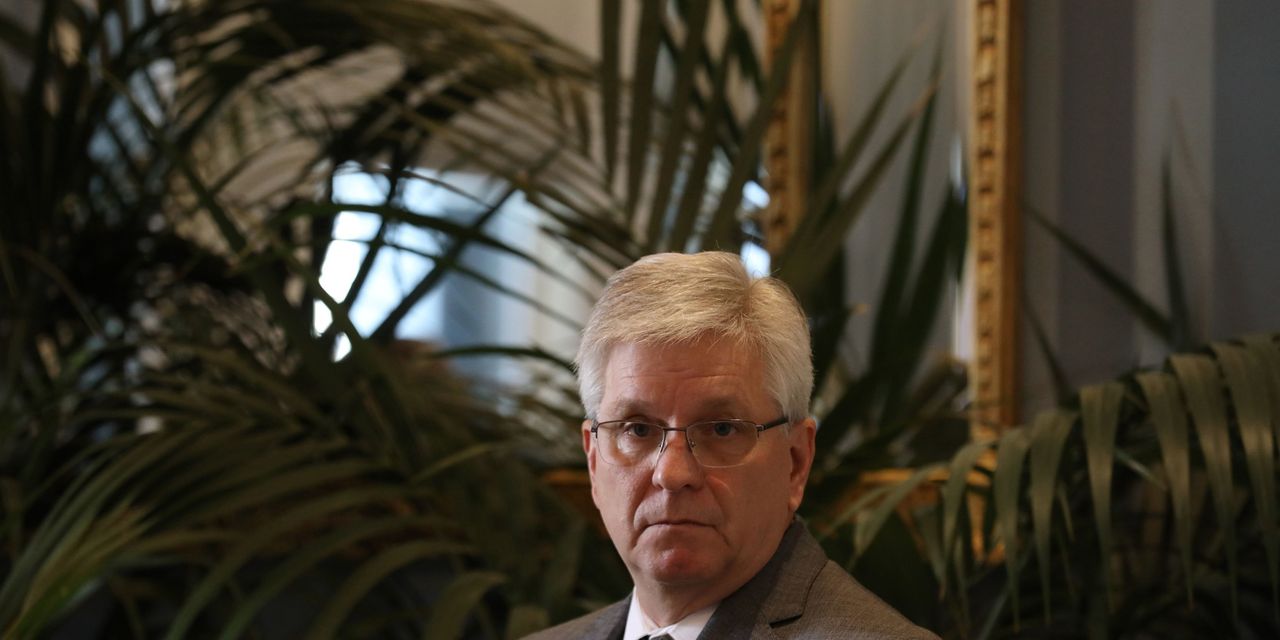Federal Reserve Governor Christopher Waller on Thursday said he supports a 0.75 percentage point interest rate hike in July, but he left the door open for a larger move if data over the next two weeks comes in strong.
“Looking toward the FOMC’s next meeting July 26-27, and with the CPI data in hand, I support another 75-basis point increase, bringing the target range for the federal funds rate to 2.25 to 2.5% before August,” Waller said, in remarks to the Rocky Mountain Economic Summit.
“We have important data releases on retail sales and housing coming in before the July meeting. If that data come in materially stronger than expected it would make me lean towards a larger hike at the July meeting to the extent it shows demand is not slowing down fast enough to get inflation down,” Waller said.
The strong June consumer inflation data has led investors and some economists to expect a 100 basis point hike in July.
Read: Investors see greater chance on a 100 basis point rate hike in July
In a question and answer session though, Waller said the markets have gone overboard in thinking that a 100 basis point hike is a done deal.
“I think the markets may have gotten ahead of themselves a little bit yesterday when they just assumed it would go to 100 after that report,” Waller said.
It would take more data for him to go above a 0.75 percentage point move, he stressed.
Waller called the June CPI report “a major league disappointment.”
Waller said that further rate hikes are likely to be needed this year but the size of the moves will depend on the data.
Waller said that rate hikes after a 0.75 percentage point move in July would start to restrict economic growth.
In his prepared remarks, Waller pushed back on the idea that the economy was already in a recession.
He said the strong labor market data “leave me feeling fairly confident that the U.S. economy did not enter a recession in the first half of 2022 and that the economic expansion will continue.”
Some economists think the Fed will have to raise the unemployment rate to 5% to get inflation under control. Asked for comment, Waller said a 5% unemployment rate wouldn’t be so bad from a historical perspective.
Asked if the Fed would tolerate a mild recession to break the back of inflation, Waller said the Fed has to pull down demand for goods and labor to take prices pressures off.
“That is the job I was given by Congress, I’m sorry,” he said.
But Waller said he thought there could be a “growth recession” where the economy slows below it’s long-run average but doesn’t go negative.
“You could have slowing growth for four quarters and that might be enough to get demand down, get inflation down, without going into a full blown recession. I still think that’s possible,” he said.
The yield on the U.S. 10-year Treasury note
TMUBMUSD10Y,
moved below 3% Thursday and stocks fell sharply on concern that the Fed will be aggressive with interest rate hikes and push the economy into recession.

